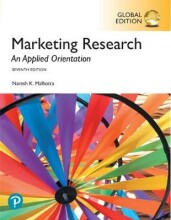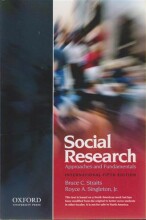Organisational development and sense-making approaches
30 important questions on Organisational development and sense-making approaches
What is the aim of the OD approach?
Others claim that the classic OD approach is revolved around three sets of core values. The values are constructed from human psychology and focus on developing people in organisations and helping these people to achieve satisfaction. What are the three values?
Democratic values: relate to involvement, freedom of choice and social justice
Developmental values: relate to growth authenticity and self-realization
What is special about the classic od approach?
- Higher grades + faster learning
- Never study anything twice
- 100% sure, 100% understanding
The role of the OD practitioner is central and could be internal or external to the organisation. What is the aim of a typical OD practitioner?
The OD practitioner must monitor a number of steps (8x)
- Culsultation with an OD practitioner
- Data gathering and problem diagnosis
- feedback
- joint problem diagnosis
- joint action planning
- change actions
- further data gathering
What is the difference between intrapersonal skills and interpersonal skills?
Inter: the ability to work in groups and build trust easily
Kurt Lewin supports these OD interventions for the practitioner with a three-stage model that consists of?
Changing: the organisation by implementing new behavior through cognitive restructuring
Refreezing: the change into the operations of the organisation by integrating new behaviors into social and organisational relationships
What are some other criticisms of the OD method related to?
What does Warner Burke argue about OD?
What does David Nicholl argues about practitioners?
Other OD writers challenge managers to improve their organisation on what points?
- More inclusive (more levels of involvement)
- Create mutual accountability
- reinforce interdependence
- expand notions of time and space
- ensure the wise use of natural resources
- redefine the purpose of the organisation in terms of multiple stakeholders
What is the claim of the managerial (or leadership) grid developed by Robert Blake and Jane mouton?
In the managerial grid, seven forms of leadership are mentioned that vary in their emphasis on people vs results. Which seven?
- Controlling
- Accommodating
- Status Quo
- Indifferent
- Paternalistic
- Opportunistic
- Sound: most preferred, because it is concerned with both people and results
What is the criticism of Marshak on the managerial grid?
There is a doubt about the suitability of the OD model for second grade, large-scale changes in organisations. In response to these criticisms techniques are developed that make the OD model suitable for use in large changes. Give some examples
- future search
- search conference
- participative design
- whole-system design
- open space technology
- appreciative future search
-real-time strategic change
- fast-cycle full participation
- ICA strategic planning process
- large-scale interactive process
What is the argument of proponents of large-scale interventions
What are arguments of the opponents of the use of OD regarding large-scale interventions?
What are arguments of the opponents of the use of OD regarding the traditional OD model?
What is the focus of appreciative inquiry?
- discovering discover what works best in current practices
- building building further on this knowledge in order to continue in the future
- designing co-constructing or designing by listening to collective dialogues
- sustaining the organisations future
What are according Fuller, Griffin and Ludema the advantages and disadvantages of Appreciative inquiry?
it creates new constructive conversations, releases the self-sustaining capacity of learning, flourishes the necessary conditions for the organisation and provides a reservoir of strength for positive change
-
the approach is successful in reaching the outcome but it is difficult to establish because it is based on propositions rather than on research
What is the aim of Positive Organisational Scholarschip (POS)
Afterwards, organisations undergoing this approach try to understand the behaviors and dynamics of these 'positive deviances' and figure out on how to spread them throughout the organisation
The POS perspective involves the four connotations described by one of its founders (cameron) which four?
Focusing on positively defiant performance: investigating outcomes that are well in excess of any normally expected performance, that are extra ordinary
Assuming an affirmative bias: the view that positivity generates the capacity for greater achievements
examining virtuousness: assuming that all 'human systems' are inclined towards the highest aspirations of mankind
Fineman had 4 criticisms regarding POS, which four?
There is doubt whether positivism and negativism really are isolated from each other or that hey are two sides of a coin in which each positive point also brings something negative with it or vice versa
positive behavior and emotions can vary by cultural environment
There is also a 'dark side' of positivism, since not everyone responds positively to positive programs such as a culture of fun in the workplace
What is the defence to this criticism?
What is the role of the change agent within the model of POS?
What is according to Mantere the sense-making process?
followed by 'sense-giving' (reshape people's understandings of the direction of the firm)
The sense-making model of Karl weick argues against three assumptions of change, which three?
- the assumption that a standardised program of change is needed
- the assumption of unfreezing
Explain the assumption that a standardised program of change is needed
- animation, direction, paying attention and updating, respectful candid interaction
How is sense making defined by Rouleau and Balogun?
Explain the concepts of frame-validating and frame-breaking
Mental models can make people resistant to change
The question on the page originate from the summary of the following study material:
- A unique study and practice tool
- Never study anything twice again
- Get the grades you hope for
- 100% sure, 100% understanding






























